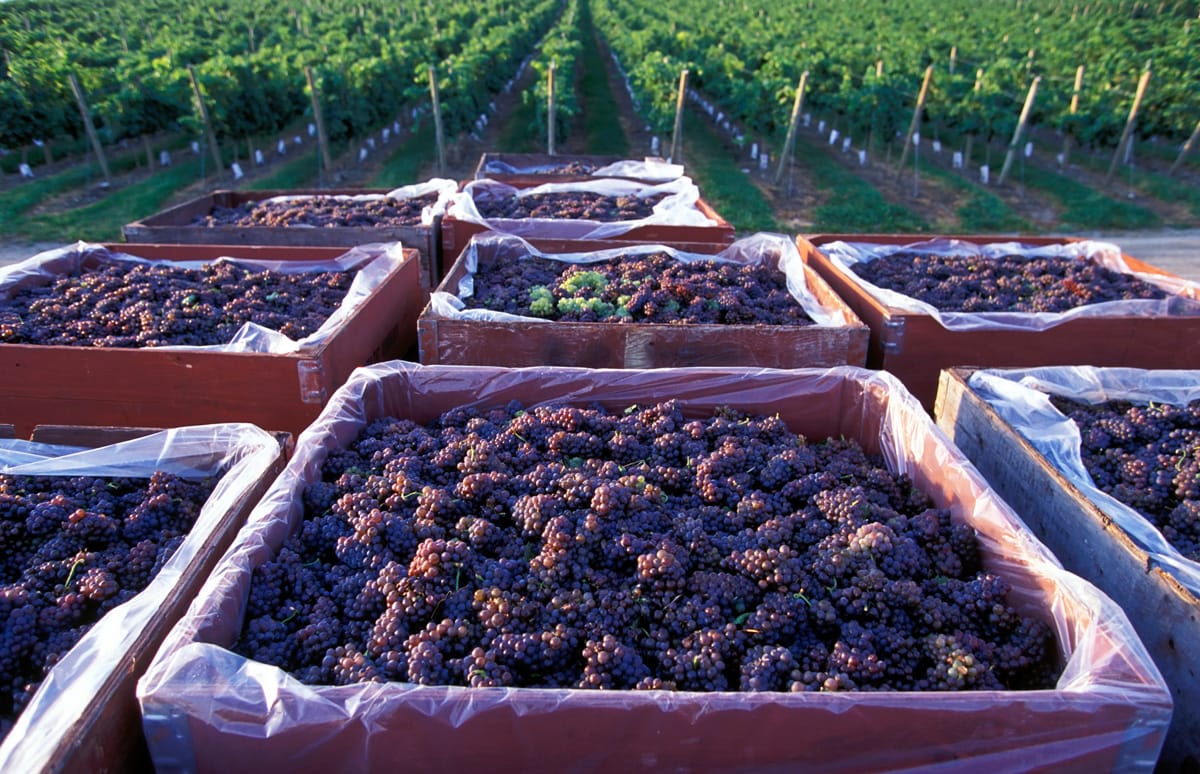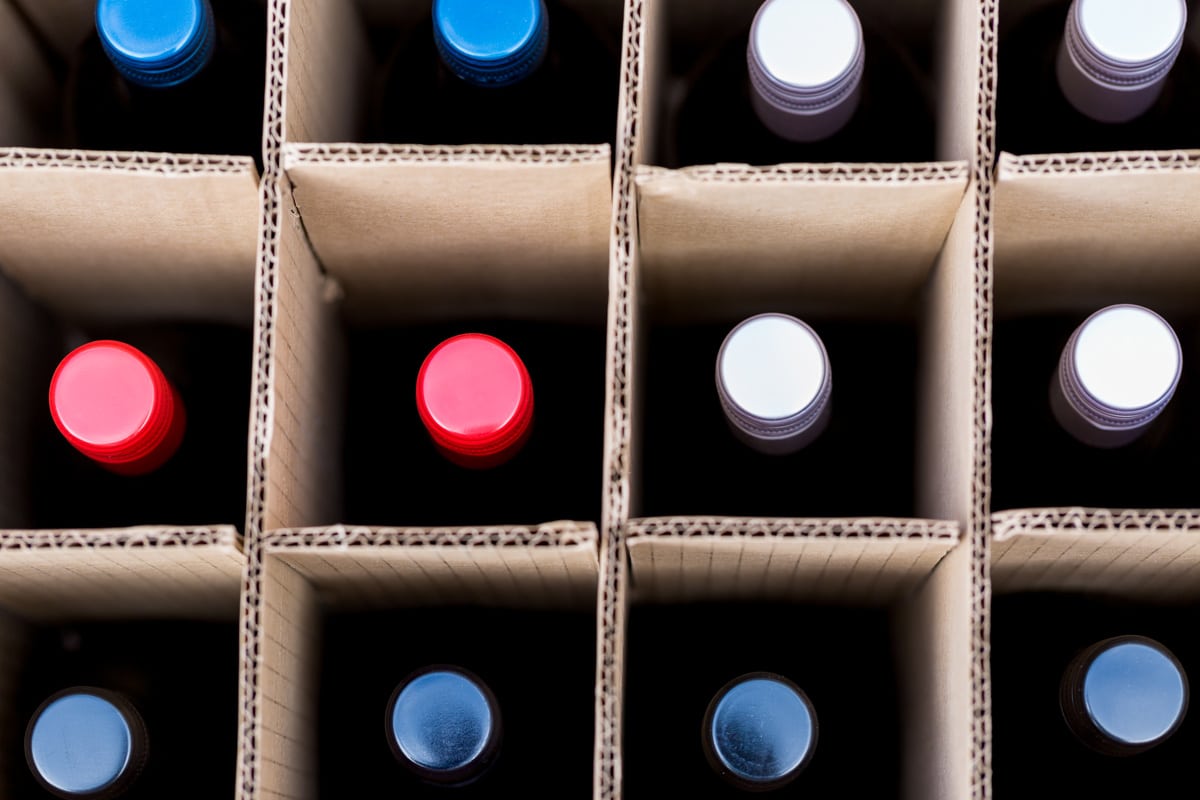
Wine Culture Magazine

Pinot Gris grape harvest in the Okanagan Valley. istockphoto.com/laughing mango photo
If Dr. Jamie Goode has one piece of advice for Canadian winemakers, it’s simple: “Stop making the shit.”
The UK-based wine writer and academic was part of an expert panel speaking at the recent Vancouver International Wine Festival symposium on Canada’s place in global wine markets. Their conclusion? Although Canadian wine is almost unknown globally, where this country is right now is in many ways where the rest of the world wants to be. Specifically, we are making authentic, terroir-driven wines with a cool-climate sensibility and an enviable diversity both of styles and the people producing them.
These are wines that can demand high prices and critical respect, both at home and abroad. The risk is in aiming low and becoming known for producing inexpensive, high-volume wine—once that happens in a region, it’s hard to gain attention for its finer wines. (Looking at you, Argentinean Malbec.)
“Canada is at a fascinating point because there is so much good wine being made,” Goode said. “It’s what you’re doing now that will determine the future.”
 Producers of Canadian wine received at least one bit of good news in the federal budget tabled in March: the promise to change the law restricting shipment of alcohol between provinces.
Producers of Canadian wine received at least one bit of good news in the federal budget tabled in March: the promise to change the law restricting shipment of alcohol between provinces.
It’s long been a bitter irony that it, if you live in Ontario, it’s easier to get a bottle of wine from Chile than it is to get one from B.C. Now, at long last, it looks like that might start to change.
The federal government has proposed changing the Importation of Intoxicating Liquor Act “to remove the federal requirement that alcohol moving from one province to another be sold or consigned to a provincial liquor authority.”
In other words, if the change is approved, you can finally have a six-pack of Tawse Meritage legally shipped to your door. That said, there is an election coming up in October, so who knows what will actually happen?
 In even more potentially good news for restaurateurs, retailers and consumers alike, in January Canada’s competition watchdog urged the B.C. government to change some of its most restrictive rules around alcohol sales: specifically, where restaurants can buy their booze, and how much they have to pay for it.
In even more potentially good news for restaurateurs, retailers and consumers alike, in January Canada’s competition watchdog urged the B.C. government to change some of its most restrictive rules around alcohol sales: specifically, where restaurants can buy their booze, and how much they have to pay for it.
In an open letter to B.C. Attorney General David Eby, Matthew Boswell, the Commissioner of Competition at the Competition Bureau of Canada, recommended allowing the province’s hospitality businesses to purchase beverage alcohol from either government or private stores and permitting them to pay a wholesale price.
Currently, bars and restaurants can only purchase alcohol from government liquor stores and have to pay the full retail price. Not surprisingly, they’ve been asking for these changes for decades.
Eby has promised to consider the issue.
If you produce beer, wine, cider or sprits in B.C. and haven’t put November 19 into your calendar yet, what are you waiting for? That’s the date of the second Fortify Artisan Fermenters and Distillers Business Conference and Tradeshow in Penticton, and it’s a must for anyone in the trade.
Organized by Sandra Oldfield, president of Elysian Projects Inc., the conference offers advice on everything from working with media to getting government funding, dealing with lenders, hiring (and firing) staff, passing liquor inspections and so much more. fortifyconference.ca

Vitis is is an indispensable seasonal guide for vintners, sommeliers and weekend imbibers alike that is dedicated to British Columbia’s rapidly evolving wine culture.

Vitis is is an indispensable seasonal guide for vintners, sommeliers and weekend imbibers alike that is dedicated to British Columbia’s rapidly evolving wine culture.
Copyright © 2025 - All Rights Reserved Vitis Magazine